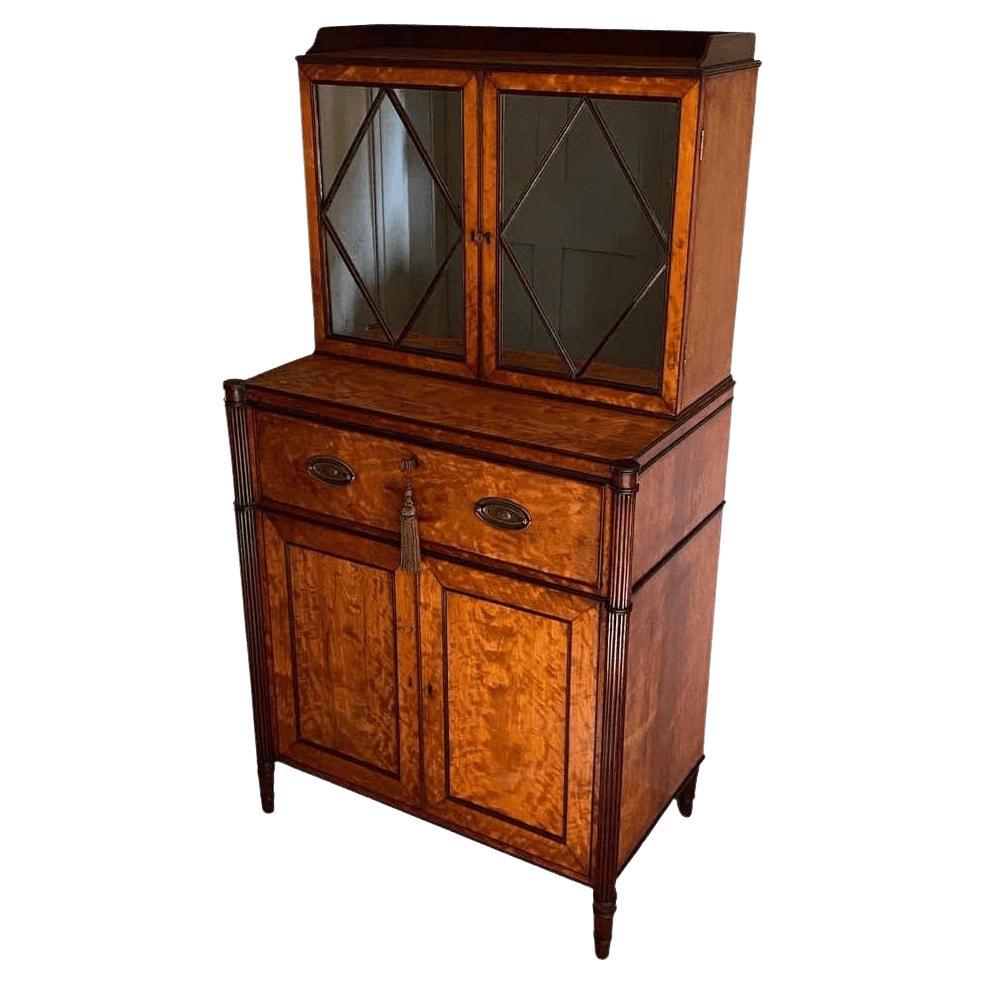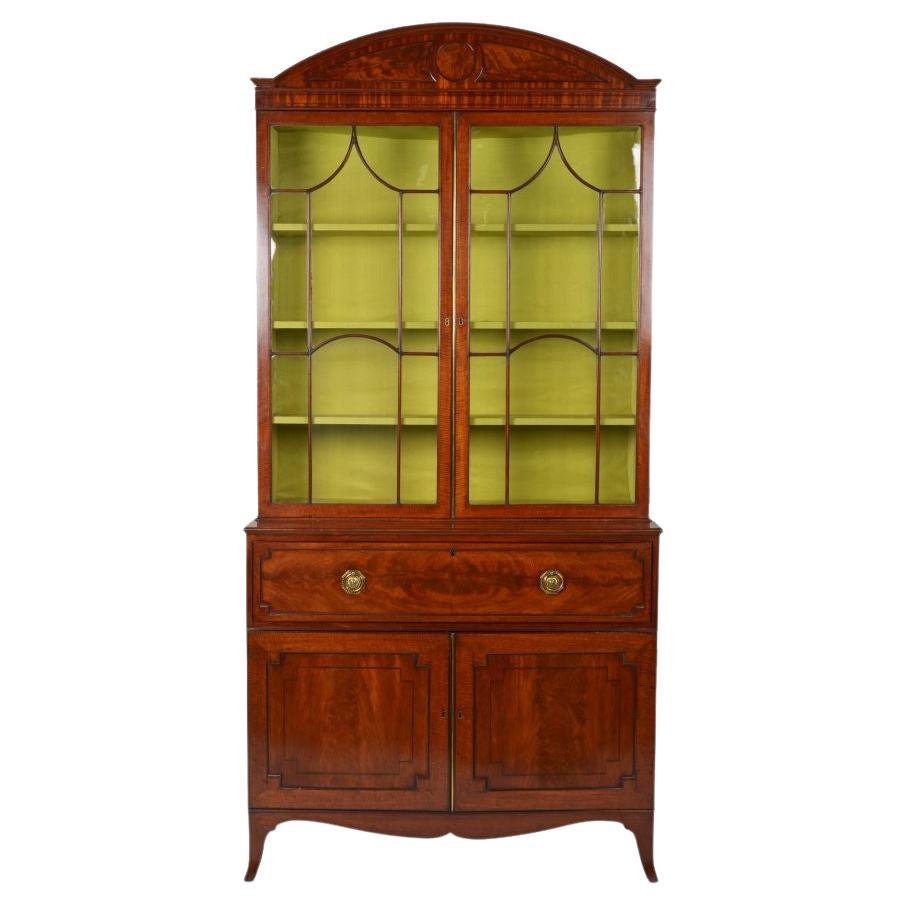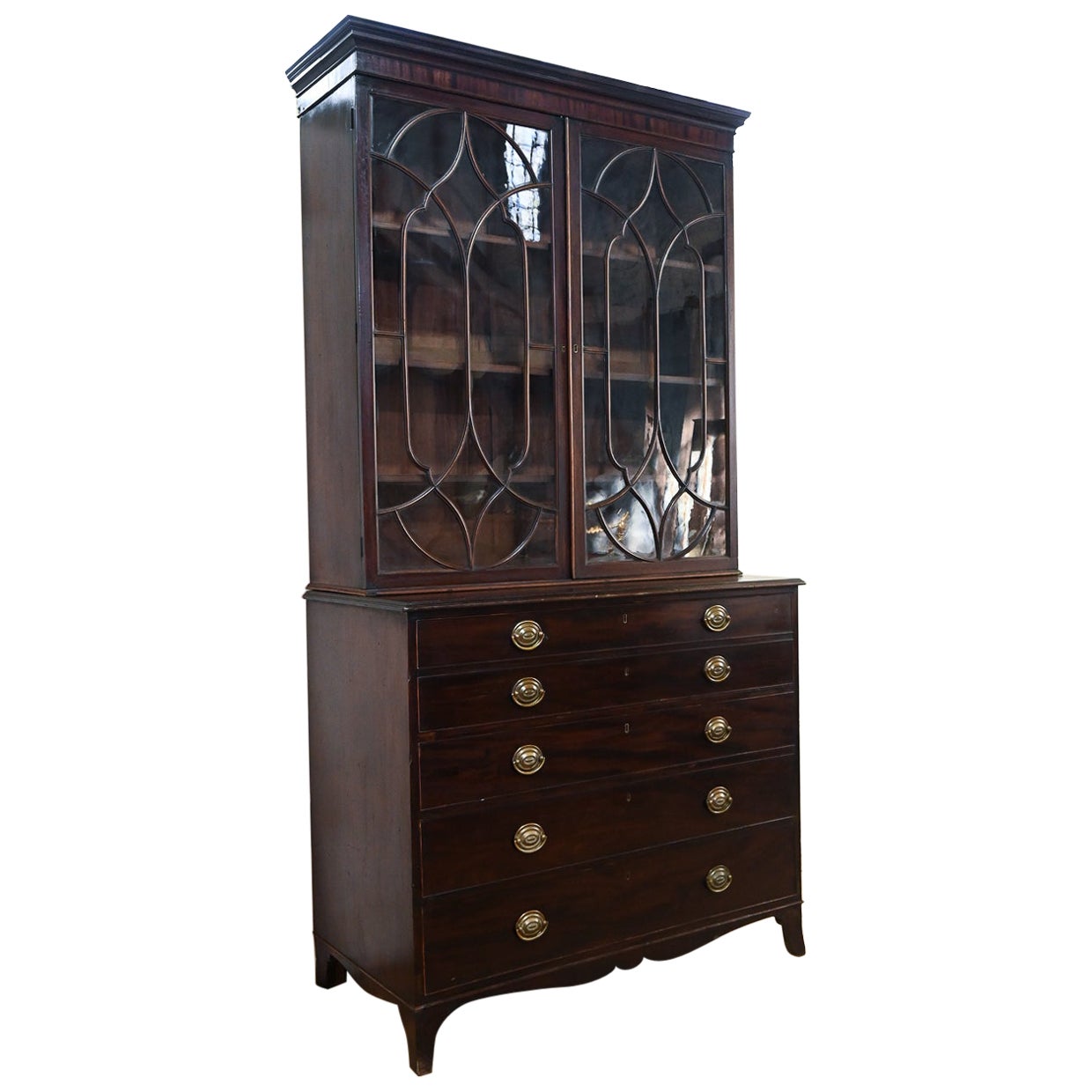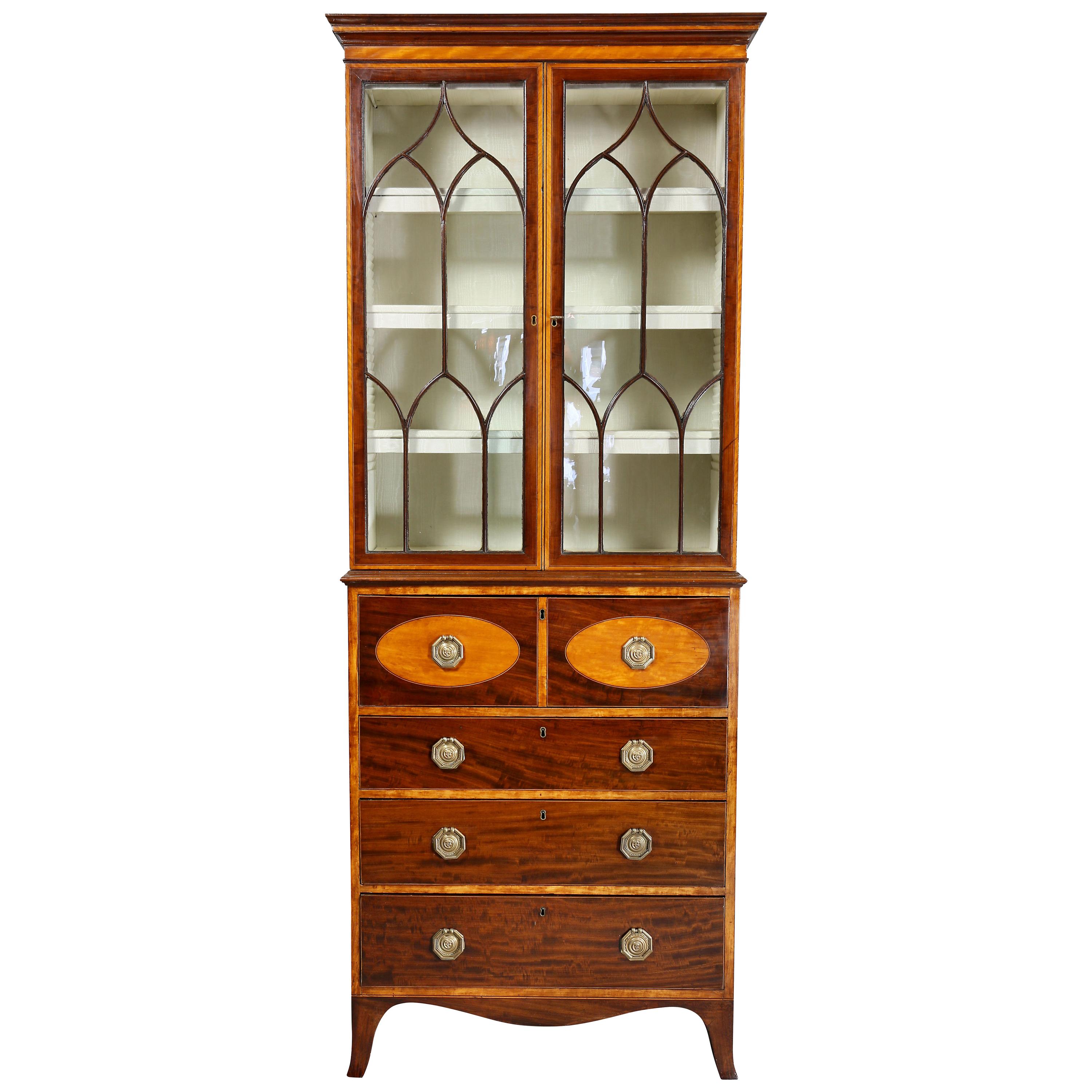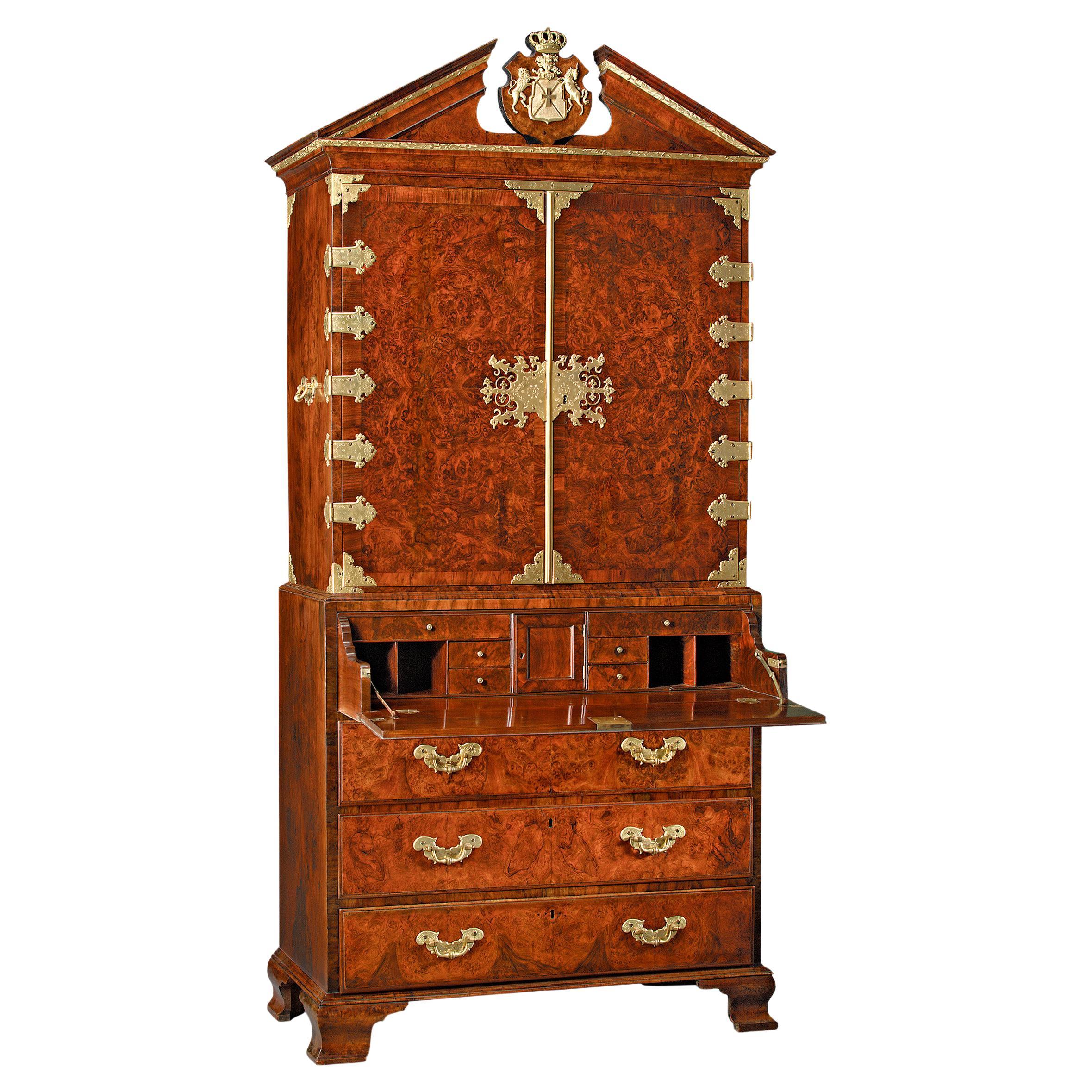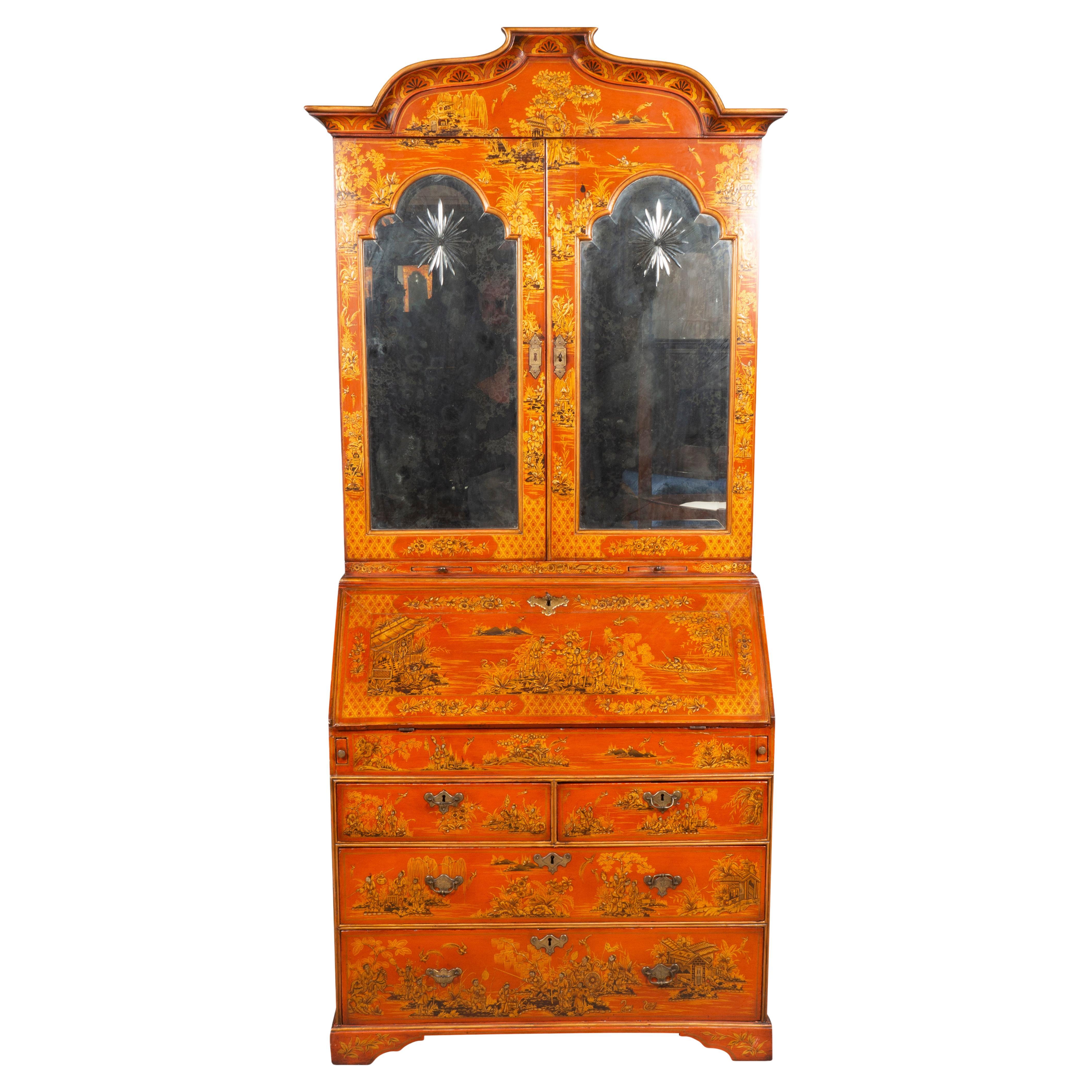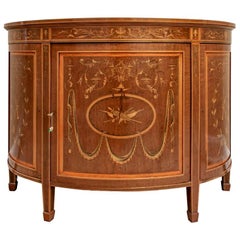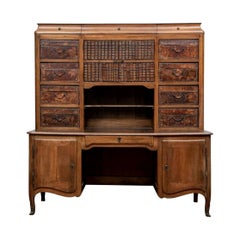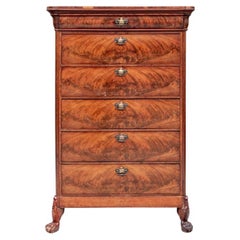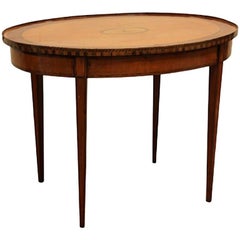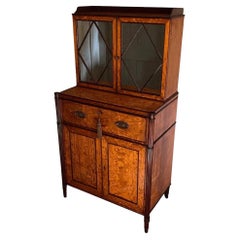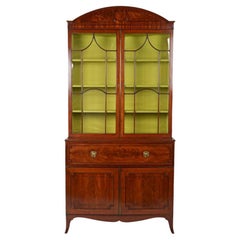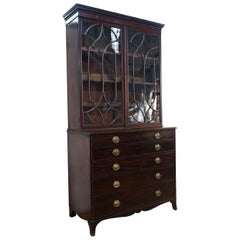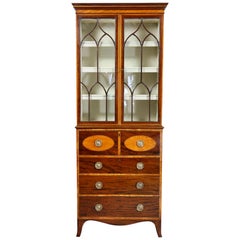Items Similar to Superb George III Style Inlaid Marquetry Secretaire Cabinet
Want more images or videos?
Request additional images or videos from the seller
1 of 11
Superb George III Style Inlaid Marquetry Secretaire Cabinet
About the Item
Magnificent antique English Secretaire cabinet with satinwood, hare wood, tulipwood, and kingwood marquetry, of monumental form, in two parts. The upper section with molded cresting centered by a semi-elliptical fan above a pair of glazed doors opening to the interior. The Serpentine sides with bow-tied pendent palm branches, the conforming concave waisted projecting lower section inlaid with bow-tied grape vines, the edge having lacquered brass gadrooning above a Secretaire drawer inlaid with an urn on a drapery swaged plinth flanked by husk swags and opening to a silk lined writing surface and a fitted interior with Prospect door painted with a Prince of Wales Plume and Peacock feathers. Gilt brass feet with Acanthus Leaves.
Condition: Overall very good condition with some age-related signs of wear including some small veneer losses and a few light scratches and rubs which do not detract from the exceptionally fine and polished presentation.
- Similar to:Mayhew & Ince (Cabinetmaker)
- Dimensions:Height: 97 in (246.38 cm)Width: 50 in (127 cm)Depth: 20 in (50.8 cm)
- Style:George III (In the Style Of)
- Materials and Techniques:
- Place of Origin:
- Period:
- Date of Manufacture:19th Century
- Condition:Wear consistent with age and use. Minor losses.
- Seller Location:Bridgeport, CT
- Reference Number:Seller: 247871stDibs: LU175524387443
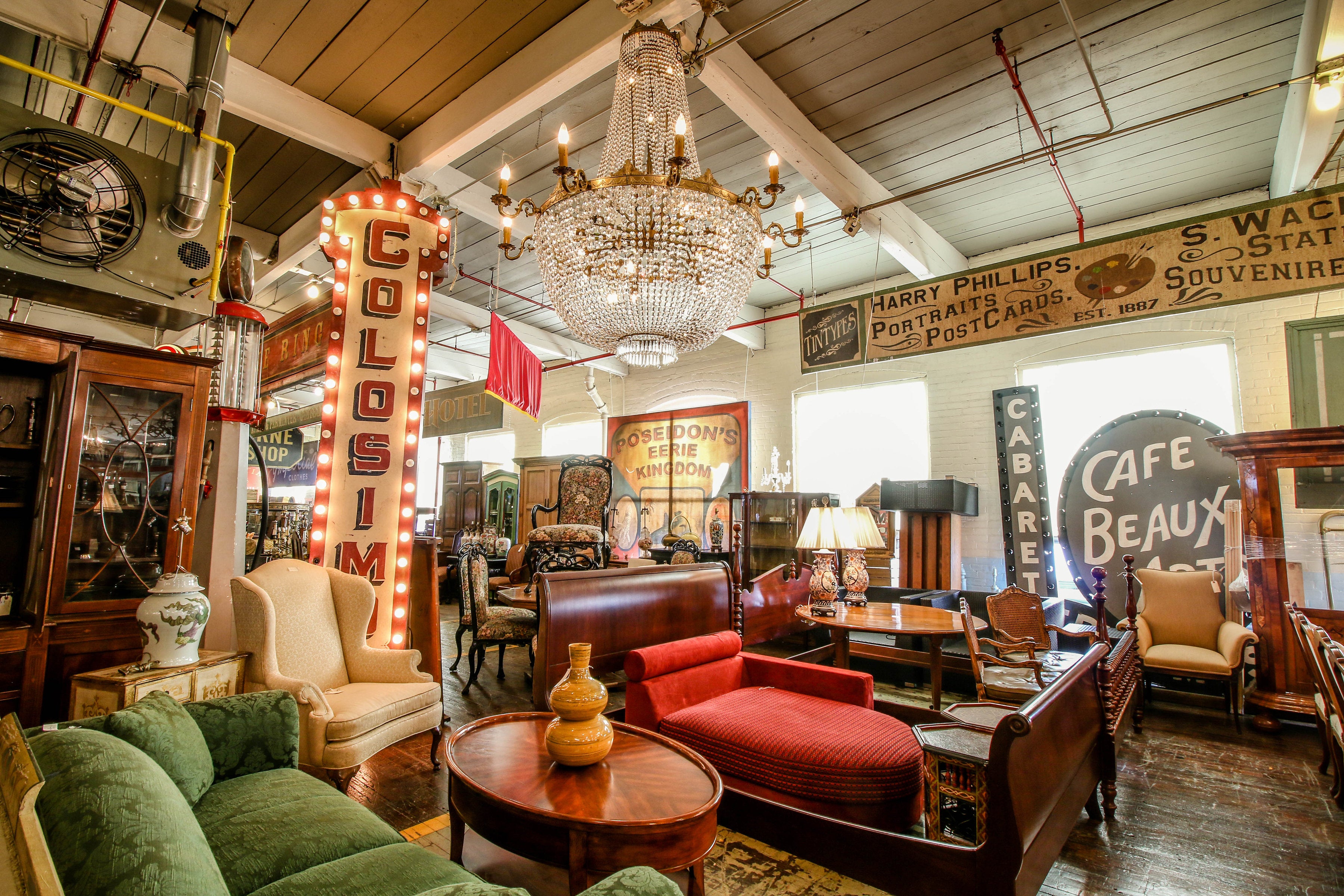
About the Seller
5.0
Vetted Professional Seller
Every seller passes strict standards for authenticity and reliability
1stDibs seller since 2015
1,936 sales on 1stDibs
Typical response time: <1 hour
- ShippingRetrieving quote...Shipping from: Bridgeport, CT
- Return Policy
Authenticity Guarantee
In the unlikely event there’s an issue with an item’s authenticity, contact us within 1 year for a full refund. DetailsMoney-Back Guarantee
If your item is not as described, is damaged in transit, or does not arrive, contact us within 7 days for a full refund. Details24-Hour Cancellation
You have a 24-hour grace period in which to reconsider your purchase, with no questions asked.Vetted Professional Sellers
Our world-class sellers must adhere to strict standards for service and quality, maintaining the integrity of our listings.Price-Match Guarantee
If you find that a seller listed the same item for a lower price elsewhere, we’ll match it.Trusted Global Delivery
Our best-in-class carrier network provides specialized shipping options worldwide, including custom delivery.More From This Seller
View AllAntique George III Style Demilune Satinwood Marquetry Cabinet
Located in Bridgeport, CT
George III satinwood and marquetry cabinet. Satinwood was used as the background for the delicate inlaid marquetry designs. Satinwood, from India, gains its distinctive soft and subt...
Category
Antique Late 19th Century English George III Cabinets
Materials
Satinwood
French Secretaire Cabinet With Leather Bound Doors And Drawers for Restoration
Located in Bridgeport, CT
An extraordinary 19th Century French osecretaire a deux corps with a tall separately made upper cabinet. The top with three curved drawers over double doors with French leather bound book spines, 18th century. Opening to a chinoiserie wall papered...
Category
Antique 19th Century French French Provincial Secretaires
Materials
Leather, Wood, Paper
Antique Burled Secretaire a Abattant
Located in Bridgeport, CT
A tall cabinet with carved cavetto cornice, over a slim curved frieze drawer and one upper and two lower long drawers. The middle faux drawers drop down to the secretary. The fitted interior with drawers, and a center compartment with door housing an inkstand with two glass bottles with silverplate tops. With patinated brass bat...
Category
Antique 19th Century Secretaires
Materials
Brass
Antique George III Style Inlaid Oval Center Table for Restoration
Located in Bridgeport, CT
Satinwood and rosewood banded top with centre fan medallion an overhanging top with inlaid edge and shallow gallery. The apron with two patterned inlaid bands and raised on square ta...
Category
Antique Late 19th Century George III Side Tables
Materials
Satinwood
Fine English George III Style Mahogany & Burl Bookcase Cabinet
Located in Bridgeport, CT
English George III style mahogany and burl bookcase cabinet in two parts. The upper with glazed doors having individual arched mullions and opening with a key to reveal two adjustabl...
Category
Antique 19th Century English George III Bookcases
Materials
Brass
Italian Baroque Style Burl Walnut Secretary Desk Cabinet
Located in Bridgeport, CT
A fine Italian baroque burl walnut secretary desk with a cartouche form mirrored panel beneath a deep scrolled pediment top and above two mirrored doors. The doors with a interior wo...
Category
Early 20th Century Italian Secretaires
Materials
Brass
You May Also Like
Fine Gillows George III Period Satinwood Secretaire Cabinet
Located in Lymington, GB
An exceptional English Sheraton-period satinwood secretaire cabinet. Attributed to Gillows.
Late-18th century, George III, ca 1790.
Measures:
H 59 1/2’’ (151 cm)
W 30’’ (76 cm)
D 19’’ (49 cm).
This small, beautifully-proportioned, and sophisticated antique writing cabinet...
Category
Antique Late 18th Century English George III Secretaires
Materials
Satinwood
Fine George III Flame-Figured Mahogany Secretaire Cabinet
Located in New York, NY
The arched pediment centered by paneled roundel, over two glazed doors with pointed astragals opening to a chartreuse silk-lined interior with shelves; the lower part with a pullout ...
Category
Antique Early 1800s English George III Secretaires
Materials
Brass
George III Mahogany Astral Glazed Secretaire Bookcase
Located in Basingstoke, Hampshire
An early 19th century astral glazed bureau bookcase of large proportions. Displaying a pair of astral glazed doors. The base houses four long drawers, on...
Category
Antique Early 19th Century British George III Secretaires
Materials
Mahogany
Fine George III Diminutive Mahogany and Satinwood Secretaire
Located in Essex, MA
With rectangular cornice over a pair of gothic mullioned doors enclosing a fitted interior, the base with drawer enclosing a fitted desk interior all over three drawers ending on spl...
Category
Antique 1790s English George III Secretaires
Materials
Mahogany
King George I Ambassadorial Secrétaire-Cabinet
Located in New Orleans, LA
This highly important secrétaire-cabinet was crafted for and specially ordered by King George I for the British Ambassador to Russia. From its craftsmanship and materials to its exceptional artistry, it is a work of royal and historic significance that exudes power in each and every detail. The broken pediment at its apex features the simplified royal coat of arms bearing the king’s crown, while the interior is adorned by portraits of the British Royal Family. Placed within the ambassador’s St. Petersburg home, this entirely unique piece of furniture would have been a potent reminder of England's grandeur and political importance.
Relations between England and Russia during this period were at an all-time high. Peter the Great had traveled to England in 1698 as part of his widely known “Grand Embassy” tour, wherein he attempted to gain foreign support against the Ottoman Empire. He spent a period of nearly four months there, meeting with King William III and his court on numerous occasions. Noted academic Arthur MacGregor wrote concerning the impact of the trip, “For two decades following Peter's visit, British influence in Russia reached a peak. It manifested itself in social custom, in craft practice and in ships and naval organization... it reached a significant sector of the population before relations cooled once again and the two nations pulled back from this era of unprecedented cordiality.”
First and foremost, however, it is a reminder of British might and influence. By the reign of King George I, England had come into its own as a world power. Unique in its design, this cabinet is a reflection of the country’s might. It is crafted from the highest-quality solid walnut and burr walnut adorned by gilded lock plates and engraved hinges. The presence of ormolu at its apex and lining the doors was a rarity for this period, and its addition makes manifest the importance of the design.
The outer doors open to reveal multiple interiors, including fifteen separate drawers around a central cupboard; the cupboard doors each bear mezzotint portraits of George I and his father, Ernest Augustus, Elector of Hanover. An etching after the portrait of George I dating to circa 1716 is in London’s Royal Academy. A second, inner pair of doors are adorned by mezzotints of the Prince and Princess of Wales (later Queen Caroline and George II), which are both after portraits by Sir Godfrey Kneller dated 1716 in the Royal Collection. A final portrait is revealed on the very interior of the cabinet, where a mezzotint of Frederick, Anne, Amelia and Caroline, children of the Prince of Wales, resides. An etching (circa 1715-1720) after this portrait can be found in the National Portrait Gallery (London).
Apart from its abundance of royal portraiture, the cabinet features stunning painted decoration, including floral designs as well as clouds, birds and trees in a bucolic motif reminiscent of Eden. Its lower portion is a study in both form and function, featuring a fitted secrétaire-drawer above three additional drawers for storage. The cabinet appears in The Shorter Dictionary of English Furniture by R. Edwards from 1964, a text that is regarded as the bible of British furniture design. Edwards describes it as a “writing cabinet...given by George I to the British Ambassador at the Russian court.”
The cabinet was likely made for the 18th-century German diplomat and writer Friedrich Christian Weber, who represented English interests at the Russian court from 1714 until 1719. Although Weber’s tenure as ambassador was relatively short, while in St. Petersburg, he authored his account entitled Das veraenderte Russland (The Present State of Russia), which was published in three volumes in 1721, 1739 and 1740. It may, however, also have been made for George Douglas, 2nd Earl of Dumbarton, who served as ambassador alongside Weber in 1716. Diplomatic relations ceased between the two countries in 1721.
In 1928, the cabinet appeared for sale at the International Exhibition of Antiques & Works of Art in Olympia. It had previously been in the collection of the Woltner family of Bordeaux, the celebrated vintners who owned the estate Château Laville Haut-Brion and produced wine of the same name. According to the family, Monsieur Woltner was given the cabinet as a gift from an aunt who lived in Russia for many years. After leaving the Woltner collection, the cabinet was acquired by William Berry...
Category
Antique 18th Century English Georgian Secretaires
Materials
Brass
George III Scarlet Japanned Secretary Cabinet
Located in Essex, MA
The case 18th century with later scarlet Japanned decoration. With shaped arched pediment over a pair of arched doors with beveled glass. Opening to a...
Category
Antique 1750s English George III Secretaires
Materials
Leather, Oak
Recently Viewed
View AllMore Ways To Browse
English George Iii Style
Used Furniture Prince George
Fan Inlaid
Prince Of Wales Feathers
Peacock Fan
Pair Of 19th Century Glazed Urns
Drapery Form Wood
Drapery Ties
Antique Feather Fan
Prince Of Wales Plumes
Peacock Urn
Ince Mayhew
Mayhew And Ince
Brass Hare
Birds Eye Maple French Secretary
Bleached Oak Secretary
Curio Secretary Desk
Curio Secretary
